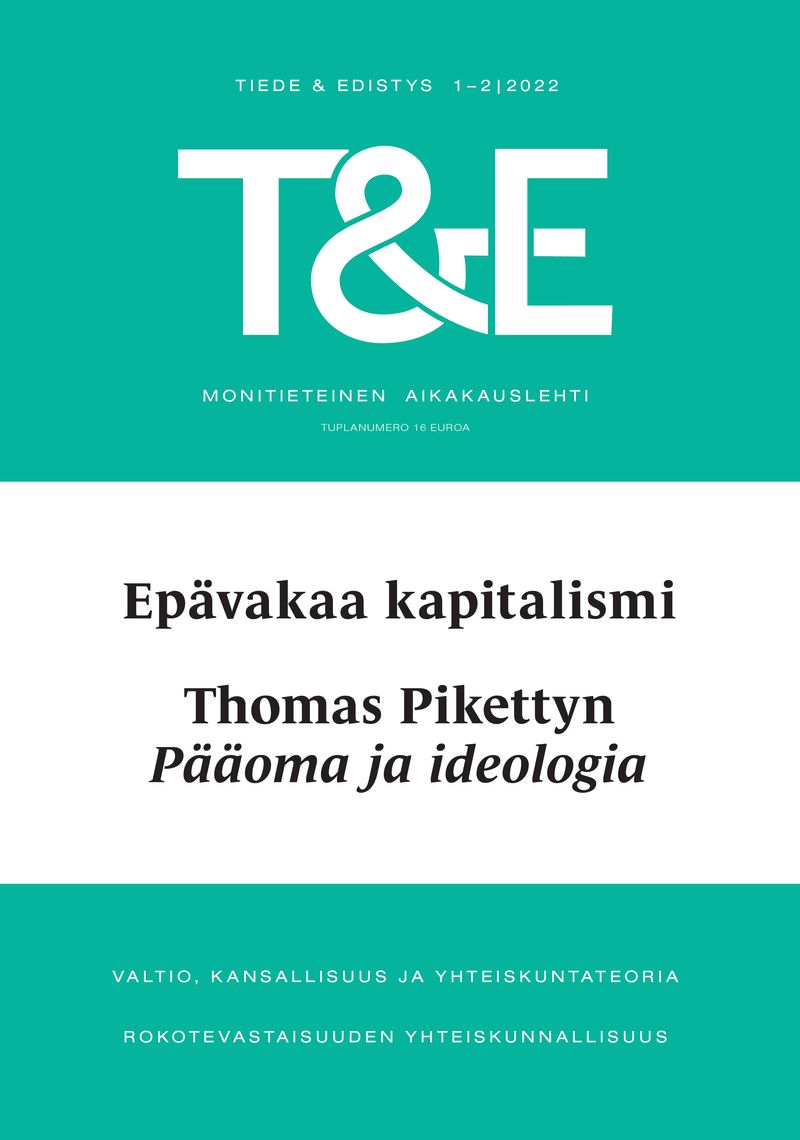
Bearing Witness: Articulating an Archival Practice
In 'Unstable Capitalism', Tiede&Edistys, NO. 1-2 (2022)
The number and intensity of conflicts that our age is a witness to are both perplexing and overwhelming. With ongoing instances of wars, conflicts, insurgencies, genocide-level pogroms, riots, bombings, state & extra-state actions and operations, the people of our age have diversified the terminology pertaining to aggressive friction and violence. Furthermore, indirect violence and softer modes of conflicts – whether as forms of patriarchal, ethnic, racialised, colourist, ableist, or gendered enforcement of domination, or the colonial and caste-based extensions of supremacy – continue to alienate us from each other on a daily basis. We live in an age of rising ethnofascism and disintegrating democracies, where conflicts, pandemics, and human crises have become yet another tool for capitalist societies to recycle pain.
Simultaneously, there is increasing information overload: online interfaces for knowledge are steadily becoming opaque, and the data we produce serves the capitalist pursuits of Surveillance Empires, corporations and governments. By declaring ownership of their users’ data and engaging in be-havioural manipulations for data extractivism, Surveillance Empires and necropolitical governments reshape political world orders, based on techno-legal architectures of control, disenfranchisement, risk management, and legalised policing of violence. We are living in the age of ‘Planetary Entanglement’ where violence is a fundamental condition at the core of the human experience, in which we are bound to ask, How to work through the methods and processes of decolonisation, while being assaulted with new forms of colonial, or neo-colonial practices – whether social, political, or economic – on a regular basis? How to learn, to adapt to a historical timeline of struggle against hegemonic power, while unlearning the fundamental biases within the foundations of one’s own being?
Read the full text here
* * *
T & E’s summer double number 1-2 / 2022 has been published! The issue focuses on Marxist thinking about the economic crisis, examines Thomas Piketty’s latest work, and reviews anti-deconstruction political rhetoric in France. The series of debates on the state of social theory that has sparked debate continues.
In their editorials, Ari Korhonen, M.Sc. (Econ.), And Katariina Mäkinen, M.Sc. Multidisciplinarity describes, on the one hand, the agile decision-making capacity of science and, on the other, the critical approach to research that destabilizes the definitions and boundaries of disciplines. Miika Kabata, M.Sc. (Econ.), And Otto Kyyrönen, M.Sc. In the speeches of the issue, the collection of several articles compiled by Professor Risto Heiskala opens the discussion with the recent publications of Thomas Piketty, who has become world-famous in the 21st century.
In her review, Docent Martta Heikkilä explains the political debate in France in recent years about the threat posed to the French national idea by so-called “Islamic-leftism”, deconstruction and decolonial thinking. Olivia Maury, PhD, will continue the series on the social theory of science & progress, answering Mikko J. Virtanen’s introductory speech “Where did you go, social theory?” with the counter-question: “Where are you hiding, social theory?” According to Maury, “we need local, Arctic, global, and multilingual social theory, and everything in between, because our society — our common planetary life — needs discussion across and against scientific and state boundaries”.
Olivia Maury, PhD, will continue the series on the social theory of science & progress, answering Mikko J. Virtanen’s introductory speech “Where did you go, social theory?” with the counter-question: “Where are you hiding, social theory?” According to Maury, “we need local, Arctic, global, and multilingual social theory, and everything in between, because our society — our common planetary life — needs discussion across and against scientific and state boundaries”. The extensive Presentations & Breakdowns section provides a comprehensive package of reviews of recent academic work that addresses Freud’s problems, state anthropology, and the concept of nostalgia.
The artist of the issue is media and performance artist Ali Akbar Mehta